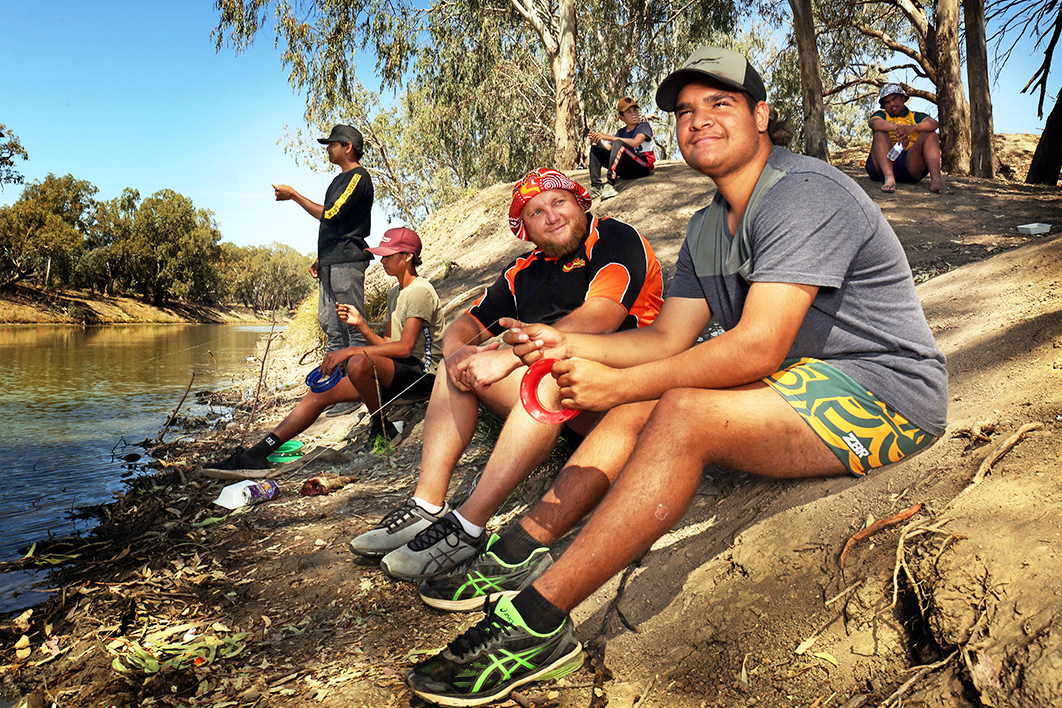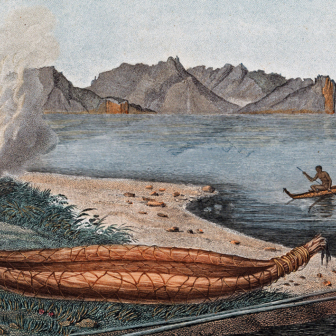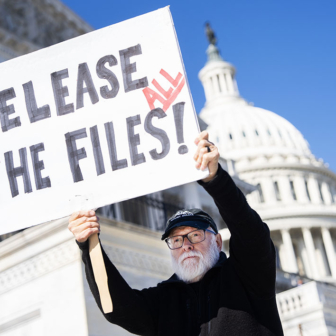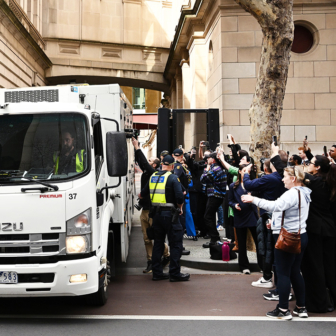It seemed a most unlikely marriage: the NSW outback town of Bourke and a New York think tank run by the American billionaire philanthropist George Soros. But five years after the Darling River town adopted the think tank’s idea for tackling crime among young Aboriginal people, it has achieved a remarkable turnaround. Last year Bourke saved over $3 million, mainly in costs to its criminal justice system, from rolling out Australia’s most advanced example of an approach known as “justice reinvestment.”
As Inside Story reported in September, Bourke’s Aboriginal community formed a partnership with Just Reinvest NSW, a Sydney-based body, to start the project. It had a pressing cause. About a third of Bourke’s 3000 people identify as Aboriginal, and for more than twenty years this community has had the state’s highest rates of juvenile crime and domestic violence. Old government law-and-order methods, costing billions of dollars, were simply not working.
The Bourke people called their alternative the Maranguka Justice Reinvestment Project (Maranguka means “caring for others” in Ngemba, a local language). Its underlying strategy, drawn from the Soros think tank, is that governments should stop building yet more prisons and divert the funds to community projects designed to help people stay out of them.
Five years after the Bourke project started, its dividends are proving impressive. After following its progress, the accounting firm KPMG produced a report in late November estimating a “gross impact” of $3.1 million in 2017. About two-thirds came from lower costs in the justice system, and the rest from broader savings in the Bourke region.
Even more striking were improvements in the main areas where justice reinvestment has focused in Bourke: domestic violence, juvenile crime and early childhood development. KPMG reported a 23 per cent drop in police-recorded domestic violence in 2017; a 31 per cent rise in Year 12 student retention rates; a 38 per cent fall in five main juvenile offence categories; a 14 per cent cut in bail breaches; and a 42 per cent reduction in days spent in custody.
KPMG estimates that the project’s $3.1 million economic impact was five times the $600,000 cost of running it in 2017, much of which came from state and federal government contributions. (Substantial extra philanthropic backing comes from the Dusseldorp Forum and the Vincent Fairfax Family Foundation.) If Bourke can sustain even half the economic results achieved in 2017, says KPMG, “an additional gross impact of $7 million over the next five years could be delivered.”
The changes stem from at least one key departure from the time when Bourke’s Aboriginal community was beholden to policies set by governments in faraway Sydney and Canberra. This has been the involvement of Bourke’s Indigenous community itself in guiding the justice reinvestment approach. Alistair Ferguson, a local Indigenous man, helped to create two bodies to get it going. One is the Bourke Tribal Council, which represents Bourke’s twenty-two language groups and makes decisions about strategy. The other is Maranguka, a community hub where local Indigenous officers meet daily with police to monitor any trouble cropping up with young people. The cooperation of Bourke’s police force, headed by Greg Moore (no relation to youth worker James Moore, pictured above), has been another part of the project’s success.
The KPMG report was launched at the state Parliament House in Sydney before a room of parliamentarians and other notables. They included Tom Calma, a former Aboriginal and Torres Strait Islander social justice commissioner, who was among the first to call for justice reinvestment trials in Australia. Sarah Hopkins, a Sydney-based lawyer who heads Just Reinvest NSW, told the room, “When we say justice reinvestment is Aboriginal-owned and led, we think of Tom Calma.”
Brad Hazzard, the NSW health minister, who has followed the Bourke project, said the number of Aboriginal people in prisons statewide “remains appalling.” Maranguka had shown “the solution has to be the empowerment of the people themselves.”
But the KPMG report also places the onus on governments to look at changing their approaches to locking people up. It will put pressure on them to take seriously the idea that prison money can be better spent on community-led early intervention to steer vulnerable young people away from crime. The Coalition government, for instance — to which Hazzard belongs — announced almost $4 billion in 2016–17 for what it boasted to be the “largest single prison expansion in the state’s history.”
The report offers four possible models for a “core unanswered question” about justice reinvestment: how to reinvest prison funds in Bourke and elsewhere. These include diverting savings from building fewer prisons towards preventing crime; rewarding communities for achievements that cut costs for governments; doing more to encourage communities to work on their own solutions; and encouraging seed funding from private donors to secure government grants related to crime prevention.
Alistair Ferguson missed the Sydney launch. He was busy in Bourke with Mick Gooda, another Indigenous leader and early justice reinvestment advocate. When I caught up with him in Sydney last Friday, he had just spoken to a seminar in Canberra, where the ACT government has embarked on justice reinvestment trials, and was preparing for “cross-leadership” meetings involving the Bourke project later in December in Sydney, Dubbo and Bourke.
Despite the KPMG report’s positive assessment, the Bourke project that Ferguson initiated has no plans to wind back. “It shows quite an achievement,” he says of the report. “It’s got to the point where stakeholders now have to consider where and how to reinvest.
“Who’ll take those decisions? It doesn’t mean I’ll be sitting in a dark room making nocturnal decisions about spending that money saved from the criminal system. We’ll be making those decisions as a community. It will be a case of sitting down with police, family and community services and the Bourke Shire Council, co-designing it with the Aboriginal community.”
Ferguson nominates education, jobs and vocational training among areas where prison money could be invested better. Then he spells out why governments can’t ignore the changes at Bourke: “First Nations people have provided a compelling case that this can’t be done without our involvement. What gets overlooked is how willing Aboriginal communities are to roll up our sleeves and address legacy issues.” •




